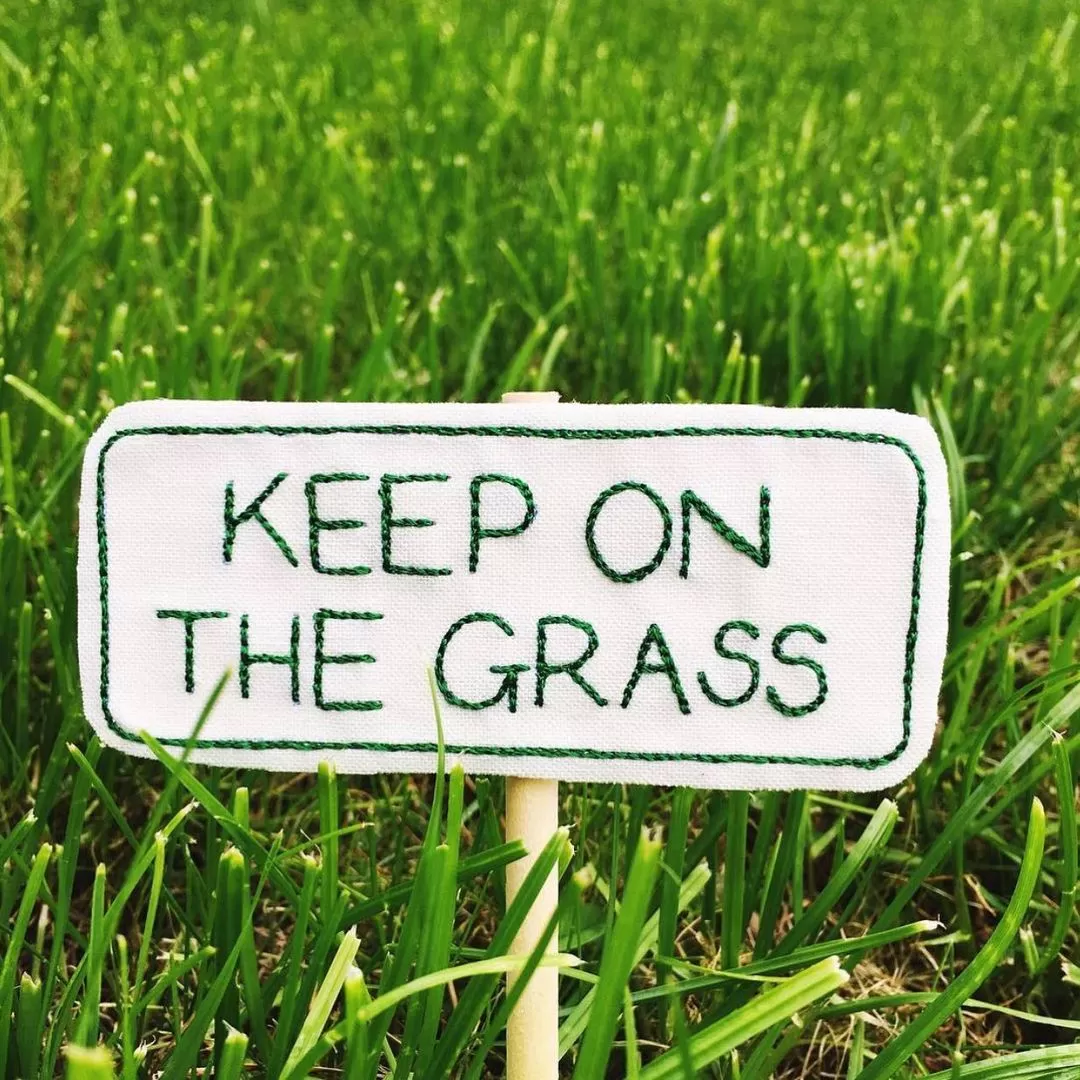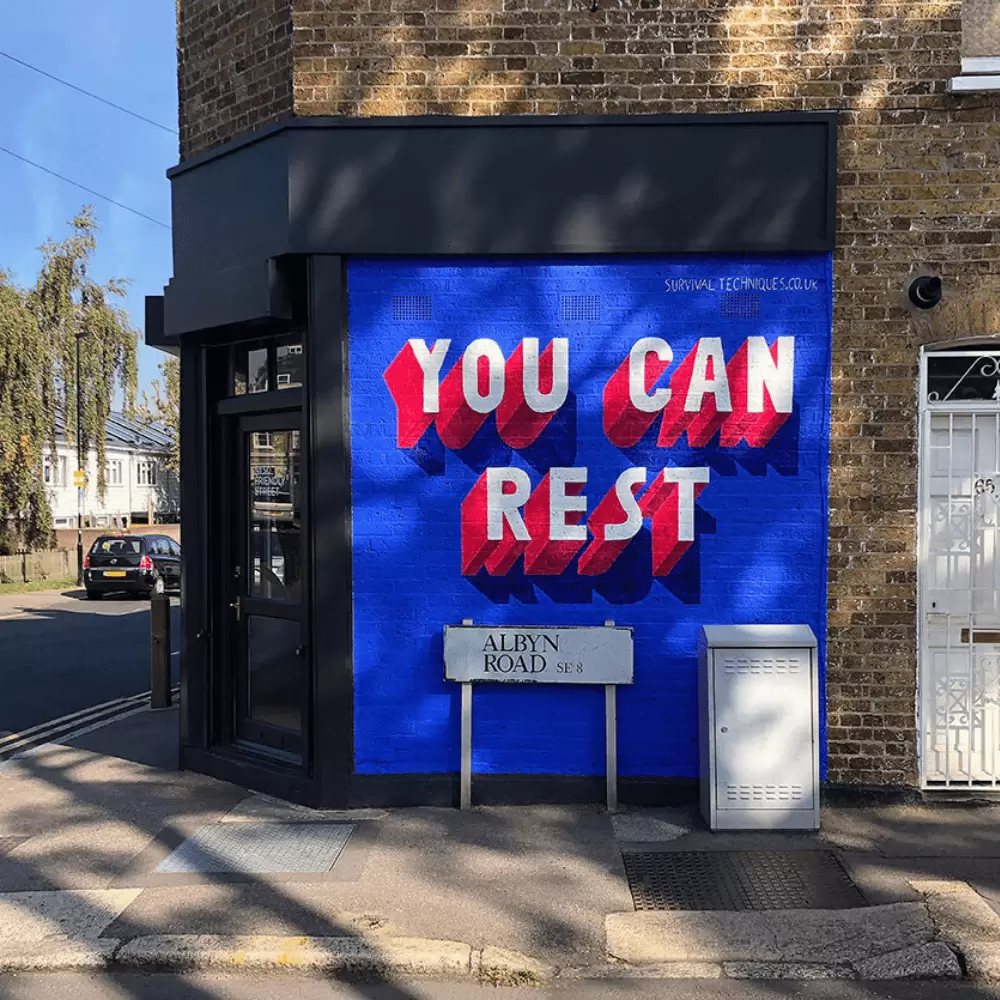NEXT DROP 6TH MARCH 7AM. JOIN CLUB HOLLY & CO FOR ACCESS

Knowing when to give up in business (don’t do it before reading this!)
Feeling scared
By Team Holly & Co
UPDATED 2ND SEPTEMBER 2023
Before quitting your business, is it worth trying one last thing? These tips show you how to create a plan to overcome obstacles and, if necessary, try a strategic rejiggle before throwing in the towel. Could this be your 'Sliding Doors' moment?
When should you quit your small business? Is quitting your business the right thing?
There are many things that are good to give up… Smoking. Allowing yourself to get crotchety because you’ve not had enough sleep. Eating half a packet of chocolate Hobnobs in one sitting then hiding the evidence afterwards. But quitting your business (unless you really need to for financial reasons) generally isn’t one of them — and there’s a very good reason for that.
What does ‘giving up your business’ actually mean?’
For many, giving up your business includes giving up income, and if you don’t have a bunch of savings nestled away underneath the bed, it’s likely you will need to replace that with something else. And what is that something else? If it’s not building another business (as that’s likely to be the reason you’re quitting in the first place) then potentially it’s to go back — or into — the corporate world.
- But would you have any more control there than you have now?
- And are you happier deep down currently than you would be in a more traditional role?
After all, Brexit, the war in Ukraine and the cost of living crisis have all had a negative effect on sales, income is low, outgoings are getting higher by the day and we’re all exhausted. You’d be forgiven for thinking about closing your business in search of an easier life. However there are several things it's worth keeping in mind…
What to do when you want to quit your small business? Consider the alternatives
Giving up your business means you will need to do something else instead and as expert business psychologist and our resident coach Kate Downey-Evans said, in one of our SME: SOS sessions, what will that be?
- It’s important that you have realistic expectations and have a plan.
- The period after finishing a job can be stressful and you would need to do your calculations accurately and honestly to make sure you can cover your outgoings, especially if household bills keep rising.
- If you’re closing because you simply can’t afford to stay open, that's one thing. But if you are just unhappy or stressed, remember that all founders, without exception, have felt the way you are feeling at some point on their journey. It’s simply a fact. So only quit if you know 100% in your gut it’s right to do so (and then read Nicola from Oklahoma’s brilliant advice on closing a business and being ok with it).

Be honest. Is everything really awful or does it just feel that way because everything’s piling on top of you and you are exhausted and can’t see a clear way out?

Sir Tim Smit’s advice: you can do anything you set your mind (and heart) to
When Sir Tim Smit KBE, founder of the Eden Project, was on our Conversations of Inspiration podcast, he shared what he considered to be one of the most important pieces of business advice he’d been given which is to, “Believe passionately that there is no barrier to you doing anything you can set your heart on.” He has overcome some of the greatest obstacles imaginable to realise his dream and it was this that kept him going when he wanted to give up. Listen to his episode to hear more.
Want to quit your small business? Why your mindset matters
Firstly, look at your headspace. Be honest. Is everything really awful or does it just feel that way because it’s all piling on top of you and you are exhausted and can’t see a clear way out? Few things feel worse than feeling trapped or experiencing anxiety because you are somehow stuck. So to help unstick you, and before we get into the more practical tips, try some breathing exercises, empty your mind and think back to what you most wanted from your business in the first place. What would good look like? Imagine a future where you’re happy and flourishing. Getting back into a positive mindset can only ever help you achieve what you need to. Now, let’s get practical…
How do you identify and evaluate your business’s strengths and weaknesses?
Start looking at what’s right — and wrong — with your business…
- Holly’s favourite exercise is to take post-it notes or a piece of paper and then on the wall, create two columns: what is working and what isn’t.
- Then sit down and brain dump everything you can possibly think of for each.
- If you work with others, celebrate the things that you are doing well. Very often we don’t take the time to do that or to really remind ourselves what we’re doing all this for, and this can really spur us on.
- Make a point to remember that from here on in, when things are going well, stop and give thanks. Recognise it. Because it’s easy to forget about these when times are hard and you most need to.
How do you address and overcome big business challenges?
Let’s start working on the tough bits…
- Keep the notes you made as a prompt somewhere handy so that every day you work, you spend your time on the things that matter and that will make a difference. This will also help prevent you from being a ‘busy fool’ so to speak.
- Remain focused and choose three things a day to set your sights on to ensure you can make progress on the important bits and start to move the dial. You’ll know what is working and what simply is not, so work on what you need to. You might well find you feel better even by just starting.
- Then give this process a time period. If in twelve weeks time you can honestly say that doing this made no difference and you have sought out all the additional free help and support available to you, listened to all the wisdom on Conversations of Inspiration from other founders who’ve been exactly where you are now, and read all our Business Advice articles (ie. You’ve tried absolutely everything you can), then re-evaluate.
Start looking at what’s right and wrong with your business before you do anything else. Holly’s favourite exercise is to take post-it notes or a piece of paper and then on the wall, create two columns: what is working and what isn’t.
The benefits of resting and recharging when you’re thinking of quitting
It’s also worth trying something completely different to gain a fresh perspective on what you’re doing now too. There’s a reason people get ideas in the shower rather than when they’re at work because they’re giving their brain a break from it and maybe that’s what you need now. Try mixing things up just by having a good rest. If you’ve been working and worrying relentlessly, give yourself a break.
How to adapt your small business for success
Ok so you’ve tried all the hard stuff and nothing is working. It’s been months now and you are adamant you are miserable. Maybe now’s still not the time to quit, just to rejiggle or pivot?
Could you go from a full-time job to a side-hustle?
If nothing is working full-time, how about turning your small business into a side hustle and gaining income through other means (the job you used to do but freelancing perhaps or doing hybrid work or other alternatives maybe, so you can still do what you love part-time)?
Have you tried it all again?
Finally, if none of the above works the first time, try it all again, because nothing easy is ever worth having. It only takes one element to change the future of your whole business and therefore life, and if this is your ‘Sliding Doors’ moment, think which route will you have been most proud to have taken in years to come? After all, you’ve done the hardest part of all which was starting a business. Is it worth giving it one last shot?
Don’t give up on a business: key takeaways…
More often than not when you want to throw in the towel, you actually just need to shake things up. Here are some key things to remember if you want to quit your business…
1. When you’re thinking about quitting, mindset matters:
Before you do anything, challenge your perspective, imagine yourself in a happy future and explore realistic alternatives to ensure a successful transition.
2. Keep resilience, perseverance and perspective:
Many founders before you have faced challenges and understand the power of believing in your ideas.
3. Rejiggle and recharge:
If faced with tough times, try innovative approaches, take breaks to gain a fresh perspective, and remember that trying again can lead to unexpected success.

Images: 'Stay On The Grass' sign — by Emma Giacalone, 'Don’t Bury Your Head In The Sand' print — by Basil & Ford, 'You Can Rest' sign — by Survival Techniques.
Related products
Related content
MORE ARTICLES BY EMOTION

The slow and steady route to a self-sufficient business
Feeling Uninspired

Why bravery in business is the ultimate superpower
Feeling scared

How to combat loneliness when running a business
Feeling lonely

Emotional labour: the real reason a woman’s work is never done
Feeling Overwhelmed

Achieving work-life balance: how I found my good life
Feeling uninspired

The golden age of redundancy: is redundancy a blessing in disguise?
Feeling uninspired

Why I believe in living a life less ordinary
Feeling Uninspired

How to collaborate with other businesses
Feeling lonely
Be the first to know
Sign up to our emails for brand new small business magic and inspiration. And if you create an account, you’ll also get exclusive product drops, discounts and more from Club Holly & Co, too.

